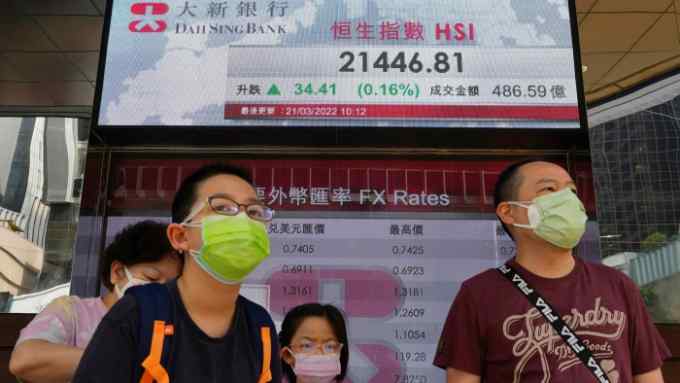Chinese ADR delisting threat looms over ETFs

Simply sign up to the Exchange traded funds myFT Digest -- delivered directly to your inbox.
Interested in ETFs?
Visit our ETF Hub for investor news and education, market updates and analysis and easy-to-use tools to help you select the right ETFs.
Exchange traded funds run by global asset managers including BlackRock and Invesco have large exposures to the threat that American depository receipts holdings will be delisted if the Chinese companies fail to meet US auditing requirements.
The US Securities and Exchange Commission has moved closer to delisting certain Chinese companies, identifying the first batch of five that will have to provide proof of audit compliance by the end of March. Failing to do so means they will have to delist from New York’s stock exchange by 2024.
The five companies are Yum China, ACM Research, BeiGene, HutchMed and Zai Lab.
Morningstar Direct Data show that 16 per cent of the $37bn China equity ETF market in the US would be exposed to the delisting risk, with 11 per cent of those being pure ADR listings.

This article was previously published by Ignites Asia, a title owned by the FT Group.
Jackie Choy, director of ETF research for Asia at Morningstar, said switching to other listings was not unprecedented.
“In the case that a company only has an ADR listing, closer to the delisting date, such delisting would be reflected in the index. Hence, the ETF would be selling out the positions,” Choy said.
“For companies that obtain a listing other than ADR, the index provider would reflect that change and ETF managers can follow suit.”
Morningstar data show that Invesco’s US-listed $212mn Golden Dragon China ETF has the largest exposure to Chinese ADRs, which represented 97 per cent of its portfolio. Assets in ADRs without a dual listing account for 20.9 per cent of its portfolio.
KraneShares’ giant $6.9bn US-listed CSI China Internet ETF and Samsung’s Hong Kong-listed US$21.5mn CSI China Dragon Internet rank second and third respectively, with 57 per cent and 54 per cent of their assets held in Chinese ADRs.
KraneShares announced earlier this month that it would transition completely to Hong Kong-listed stocks. The firm now expects the portfolio to entirely comprise Hong Kong listings by the end of 2022.
Global X’s US-listed $10.7mn MSCI China Comm Services ET holds 34 per cent of its assets in Chinese ADRs and KraneShares’ US-listed $167.7mn KraneShares MSCI China Clean Tech ETF is 30 per cent invested in them.
An analysis of Morningstar Direct’s data shows that BlackRock’s giant $6.4bn iShares MSCI China is the largest owner of the five companies earmarked for delisting in terms of market value.
Global fund companies have been switching out of Chinese ADRs listed on US markets at a growing rate over the past few years due to the threat of delisting.
The Holding Foreign Companies Accountable Act, which was implemented by former US president Donald Trump in December 2020, is designed to ban Chinese companies from US stock exchanges if they fail to meet US auditing standards for three years in a row.
Lorraine Tan, director of equity research for Asia at Morningstar, said: “We should expect more notices from the SEC to the companies with China businesses listed in the US.”
Bloomberg reported last week that investment managers are staying away from Chinese equities despite a 75 per cent drop in their valuations amid Beijing’s close ties to Moscow, tough local coronavirus lockdowns and uncertainty regarding potential further regulatory clampdowns on certain industries.

Click here to visit the ETF Hub

Comments